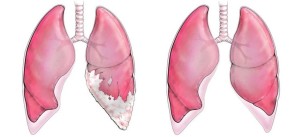Mesothelioma Survival Rate
Ok Doc, seriously, how long do I have? It sounds like its something out of a Robert De Niro movie. Its real though. And this is probably the most common question anyone asks when faced with the daunting challenge of this disease. The Mesothelioma survival rate can obviously be different for everyone. That said however the individuals ability to change factors in ones life can make substantial differences.
People who are diagnosed with Mesothelioma are likely going to ask their doctor this question and expect some sort of realistic answer. The issue is that realistic is a relative term. Specifically, how well the individual maintains their health. Factors like how much exercise, how much meat and dairy one consumes (less is better in this case by a large margin.) The quantity of fresh, live leafy greens one consumes on a daily basis. Close and supportive relationships one has. Stress levels. Happiness and satisfaction with work and Overall happiness level. These are enormously impactful variables.
Family and friends are going to be concerned. One of the best outlooks Ive ever heard was from a friend Joey. He was diagnosed in December and was given 1-2 years to live. He says this journey is just one of many. The uniqueness and diversity of each journey we take as human spirits in these forms (our bodies) is what makes it interesting. Its the contrasts.
Without the contrasts life has no meaning.
This made me tear up a bit.
As with most diseases, however, there is no one answer as to the life expectancy of a mesothelioma patient. As is the case with almost any disease there isnt a simple one-size-fits-all answer to the question. Mesothelioma patients are going to experience the same thing. It varies. Quite a lot.
+++
Generally speaking the rate of survival for mesothelioma patients is going to be calculated using a wide variety of factors. Each case is obviously different.
Drinking more fresh living leafy greens is never a bad idea for any of us. the phytonutrients help dramatically in keeping our immune systems strong and healthy in fighting the cancer cells.
In general, the mesothelioma survival rate is based on a number of different factors. Every case is a little bit different and, although the survival rate for mesothelioma victims has traditionally been grim, more and more patients are living longer with the disease as scientists discover new and more effective ways to detect the disease and to treat it.
Survival rates for mesothelioma patients are dependent upon a variety of factors that may include any or all of the following:
Mesothelioma Latency Period
Its actually an unusual form of cancer in that Mesothelioma cancer has quite an extended latency period.
Basically that just indicates that the body shows no signs of illness or disease for several years. Decades even. Its not uncommon for 4 or 5 decades to of gone by before even the 1st symptom has shown.
In some cases that means that the cancer has spread to other parts of the body Unfortunately.
Essentially, this means that the disease often “hides” in the body for many years, sometimes for up to four or five decades. Hence, 40-50 years may have passed since initial exposure to asbestos first occurred. This extended latency period also means that the disease is not detected until symptoms arise. Often, by that time, the cancer has spread from the primary area to other parts of the body.
Stage of Disease at the Time of Diagnosis
Individuals whose mesothelioma is discovered in Stage 1 or 2 have a greater chance of surviving the disease for an extended period of time due to the fact that more treatment options will be available to them. Individuals diagnosed with Stage 3 or 4 mesothelioma will have fewer treatment options, and thus, a less favorable prognosis. The worst mesothelioma prognosis is seen in patients with advanced cancer that present or are symptomatic with distant metastases of the primary tumor, i.e., the cancer has spread from the primary area to other parts of the body.
Operability of the Tumor
Due to the aforementioned latency period, surgery to remove the primary mesothelioma tumor is often not an option. However, if the disease is discovered in an early stage, a surgical procedure to remove the tumor may be a possibility, especially when the patient is otherwise healthy.
Age of the Patient
The younger the patient, the better the chance for survival. Studies have shown that age does indeed play a factor in survival rate and young patients certainly fair better.
Co-morbidity with Other Illnesses
Patients, especially older ones, who have many other medical issues are less likely to survive for any length of time with mesothelioma. This is especially true with older patients, who account for large numbers of mesothelioma victims. Heart disease, kidney problems, diabetes, hypertension, and a host of other illnesses or disorders can severely impact treatment options and, hence, shorten a patient’s life span.
Mesothelioma Treatment
The length of time a mesothelioma victim survives may depend on the treatment(s) he receives. Most doctors will be as aggressive as possible, understanding that this is a tough cancer to treat.
Area and Type of the Disease
Mesothelioma comes in various forms. About 75 percent of cases appear in the pleura, 15 to 20 percent in the peritoneum, and just 5 percent in the pericardium. Pleural mesothelioma is easier to treat and patients will generally have a longer mesothelioma survival rate than those whose disease is centered elsewhere. In addition, those with epithelial mesothelioma (most cases are of this type) have a better prognosis than those with other types of mesothelioma.
Mesothelioma Survival Rate Stats
Mesothelioma is a form a cancer with a notably poor prognosis;mesothelioma life expectancy following diagnosis ranges between eight and fourteen months. The primary reason is the lengthy mesothelioma latency period as well as the fact that early mesothelioma symptoms are indicative of numerous other respiratory diseases as well, often delaying a correct diagnosis. While Stage 1 or stage 2 mesothelioma is often potentially curable, Stage 3 and stage 4 mesothelioma is not; such patients are often relegated to palliative treatments to relieve symptoms and restore quality of life.
Mesothelioma prognosis is officially determined by a standard measure known as the relative five-year survival rate. This number indicates how many patients are still alive five years after being diagnosed with the disease. Currently, the relative five-year survival rate for mesothelioma is about 10 percent, a number that is significantly higher than it was a few decades ago. The one-year survival rate has also improved throughout the last 20 years or so and now sits at approximately 40 percent. Nevertheless, the overall mesothelioma survival rate remains poor.
Mesothelioma survival rate varies from patient to patient, with some patients being able to far exceed initial prognosis at diagnosis
However, there are exceptions to the rule and there are some individuals who have defied the normal mesothelioma survival rate. One man, Australian Paul Kraus, has been living with the disease since 1997, designing his own treatment program and shunning traditional medicine. Other mesothelioma victims who have been treated with standard therapies like chemo and radiation have also survived longer than the usual 10-11 months after diagnosis. For example, there are recorded cases of patients with a typical mesothelioma prognosis that beat the odds and survived with the disease for ten years and longer. In two cases (both elderly women),mesothelioma remission occurred for no apparent reason.
It has been difficult for doctors to determine why one patient can survive with mesothelioma for years and others succumb to the disease within a year of diagnosis. Some indicators point to the role of the immune system in fighting the disease; many survivors participated in some sort of treatment that served to enhance their body’s immune system.
This blog seems to have offered quite a few people some hope and actual supportive information.
legal disclaimer: nothing here in this website or anywhere else in any recommendations or links to other sites anywhere is meant to be construed as medical advice. For medical advice you need to see your own doctor.
There, now that weve flowed the rules, good luck to you in exploring your options.

